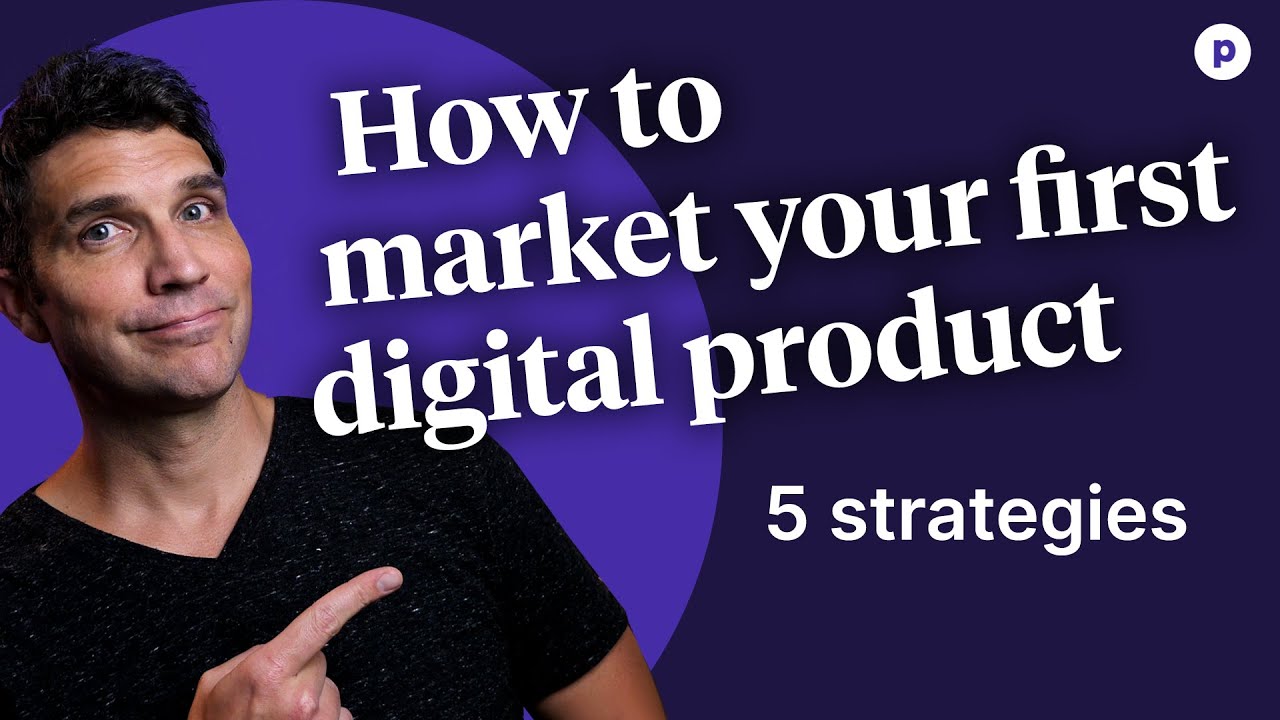- digital product marketing
- The Advantages Of Digital Products For Entrepreneurs
- Importance Of Customer Retention And Creating New Products
- Key Advantages Of Digital Products
- Educating Consumers About The Benefits Of Digital Products
- Profitable Digital Products For Entrepreneurs
- Different Options For Marketing Digital Products
- Additional Digital Products To Create And Sell Online
- Protecting Digital Products And Creating Premium Content
- Strategies For Selling Digital Products
In the era of digital dominance, the world of business has undergone a major shift towards virtual marketplaces. Enter digitalproduct marketing – a realm where creativity meets profitability.
With a plethora of advantages at their disposal, entrepreneurs have found a cost-effective and accessible entry point to success. Immediate delivery, no inventory woes, and low production costs are just a glimpse of the benefits that await those who dive into this new frontier.
Strategic marketing tactics such as education, versatile pricing options, and piracy protection are crucial ingredients for triumph on platforms like Shopify. Join us as we explore the dynamic world of digital product marketing and uncover the secrets to soaring success.
| Item | Details |
|---|---|
| Topic | Digital Product Marketing: Strategies for Success in the Online Landscape |
| Category | Ads |
| Key takeaway | In the era of digital dominance, the world of business has undergone a major shift towards virtual marketplaces. |
| Last updated | December 28, 2025 |
digital-product-marketing">digital product marketing
Digital product marketing refers to the strategies and methods used to promote and sell digital products online. This type of marketing is crucial for the success of entrepreneurs entering the digital market, as it allows for easier entry and lower costs compared to physical products.
Customer retention and the creation of additional products for existing customers are key factors for success in digital product marketing. Digital products offer advantages such as immediate delivery, no inventory issues, and no material or assembly costs.
To explain the need for digital products, education through blog posts, webinars, and customer reviews can be used. Profitable digital products include online courses, eBooks, photography, and music.
Options for marketing these products include offering courses at different price points, selling eBooks, photography, and music independently. Additional digital products that can be created and sold online include web elements, research data, tutorials and guides, software programs, cookbooks, apps, podcasts, and printables.
Protecting digital products from piracy and creating premium content are important considerations. Strategies for selling digital products include membership sites, selling licenses, selling templates and tools, and leveraging expertise.
To sell these products effectively, conducting research, validating product ideas, and using platforms like Shopify are recommended. Shopify offers various apps, such as Digital Downloads and SendOwl, to help businesses sell and deliver their digital products.
Effective marketing strategies for digital products include offering discounts, launching to existing audiences, and providing a money-back guarantee. Ultimately, creating valuable digital content and using platforms like Shopify are vital for success in digital product marketing.Key Points:
- Digital product marketing involves promoting and selling digital products online, which is essential for entrepreneurs entering the digital market.
- Customer retention and creating additional products for existing customers are key to success in digital product marketing.
- Digital products offer advantages such as immediate delivery, no inventory issues, and no material or assembly costs.
- Education through blog posts, webinars, and customer reviews can explain the need for digital products.
- Marketing options for digital products include offering courses at different price points, selling eBooks, photography, and music independently.
- Strategies for selling digital products include protecting against piracy, creating premium content, and leveraging platforms like Shopify.
Sources
https://www.shopify.com/blog/digital-products
https://kajabi.com/blog/what-is-a-digital-product
https://blog.hubspot.com/sales/selling-digital-products
https://www.thinkific.com/blog/digital-products-to-sell/
Check this out:
💡 Pro Tips:
1. Understand your target audience: Prioritize market research to identify the specific needs and preferences of your target audience. This will allow you to create digital products that truly resonate with them.
2. Leverage social media influencers: Collaborate with relevant influencers in your industry to promote your digital products. This can significantly boost your reach and credibility, leading to increased sales and brand awareness.
3. Optimize your product website: Invest time and effort in optimizing your website for search engines. Implement effective SEO strategies to improve your website’s visibility and drive organic traffic to your digital product pages.
4. Utilize email marketing: Build and nurture an email subscriber list to stay connected with your audience. Use email marketing campaigns to announce new product launches, share exclusive content, and offer special discounts, increasing engagement and sales.
5. Encourage customer reviews and testimonials: Positive reviews and testimonials from satisfied customers can greatly enhance the credibility and perceived value of your digital products. Consider offering incentives for customers to leave reviews and showcase these testimonials prominently on your website and social media platforms.
The Advantages Of Digital Products For Entrepreneurs
Digital products have become increasingly popular in recent years, offering entrepreneurs a simpler and more cost-effective way to enter the market. Compared to physical products, digital products eliminate the need for inventory management, which can often be complex and costly.
This means that entrepreneurs can focus more on creating and promoting their products, rather than worrying about storage and shipping logistics.
Another advantage of digital products is their immediate delivery. With just a few clicks, customers can access their purchased digital products, eliminating the wait time associated with physical product delivery.
This is particularly appealing in today’s fast-paced society where instant gratification is highly valued.
Furthermore, digital products have no material or assembly costs. Unlike physical products that require materials and resources for manufacturing, digital products can be created and replicated at minimal cost.
This significantly reduces production expenses, allowing entrepreneurs to maximize their profit margins.
Enhanced readability and refreshed examples.
Importance Of Customer Retention And Creating New Products
In the world of digital product marketing, customer retention is crucial for long-term success. It costs significantly more to acquire new customers compared to retaining existing ones.
Satisfied customers are more likely to make repeat purchases and become brand advocates, helping to drive organic growth and expand the customer base.
To encourage customer retention, entrepreneurs should focus on continuously creating new products for their existing customers. By providing a range of products that cater to different needs, entrepreneurs can enhance customer loyalty and increase customer lifetime value.
This not only helps to generate a steady revenue stream but also builds a strong foundation for sustained business growth.
Key Advantages Of Digital Products
Digital products come with a plethora of advantages that make them highly attractive to both entrepreneurs and customers alike. Some of the key advantages include:
These advantages make digital products an excellent choice for entrepreneurs looking for a simpler and more cost-effective way to enter the market.
Educating Consumers About The Benefits Of Digital Products
While digital products offer numerous advantages, it is essential to educate consumers about their benefits. Many potential customers may be hesitant to embrace digital products due to unfamiliarity or misconceptions.
Therefore, education through various channels is crucial in creating awareness and understanding.
One effective way to educate consumers is through blog posts and articles that explain the need for digital products. These posts can highlight the convenience, cost-effectiveness, and instant accessibility that digital products offer.
Additionally, webinars can be organized to further demonstrate the value and benefits of digital products, allowing potential customers to ask questions and gain a deeper understanding.
Customer reviews also play a vital role in educating consumers. Positive reviews from satisfied customers can reassure potential buyers and provide real-world examples of the benefits of digital products.
By actively encouraging and showcasing customer testimonials, entrepreneurs can build trust and credibility in their digital products.
Profitable Digital Products For Entrepreneurs
Entrepreneurs can find great profitability in offering various digital products. Some of the most lucrative options include:
Online courses: With the increasing demand for online education, creating and selling online courses can be highly profitable. Entrepreneurs with expertise in a particular field can develop comprehensive courses that provide value and knowledge to customers.
eBooks: The popularity of eBooks continues to rise, making them a profitable digital product. Entrepreneurs can publish their written works in eBook format, offering readers the convenience of accessing the content on various devices.
Photography: High-quality digital photographs are in constant demand, especially for businesses and individuals looking for eye-catching visuals. Entrepreneurs with photography skills can sell their images online, providing a valuable resource for those in need of captivating visuals.
Music: With the digitization of the music industry, selling digital music has become increasingly lucrative. Musicians and artists can distribute their music online, reaching a global audience without the need for physical distribution channels.
These profitable digital products represent just a fraction of the possibilities for entrepreneurs in the digital marketplace.
Different Options For Marketing Digital Products
When it comes to marketing digital products, entrepreneurs have several options at their disposal. Some effective strategies include:
These options offer flexibility and allow entrepreneurs to target specific audiences effectively.
Additional Digital Products To Create And Sell Online
Beyond the popular choices mentioned earlier, there are numerous other digital products that entrepreneurs can create and sell online. Some of these include:
Protecting Digital Products And Creating Premium Content
In the digital realm, protecting intellectual property is crucial. Entrepreneurs need to ensure that their digital products are not subject to piracy or unauthorized distribution.
Here are some strategies for protecting digital products:
Taking these steps to protect digital products can help entrepreneurs safeguard their investments and maintain control over their products’ distribution and use.
Strategies For Selling Digital Products
In addition to protecting digital products, effective marketing strategies are essential for selling them successfully. Here are some recommended strategies:
Creating valuable digital content and utilizing e-commerce platforms like Shopify can significantly contribute to the success of digital product marketing. Shopify offers a user-friendly interface and powerful features specifically designed for selling digital products.
Additionally, various Shopify apps, such as Digital Downloads and SendOwl, seamlessly integrate with the platform, providing businesses with the tools to sell and deliver their digital products efficiently.
In conclusion, digital product marketing offers entrepreneurs numerous advantages in terms of ease of entry and cost-effectiveness. By focusing on customer retention and creating new products, entrepreneurs can drive growth and build a loyal customer base.
Educating consumers about the benefits of digital products and identifying profitable product categories are key steps in this journey. By implementing effective marketing strategies and protecting digital products from piracy, entrepreneurs can maximize their success in the competitive online landscape.
Buy Traffic • Native Ad Network • Performance Marketing Tips • Programmatic Advertising • Self-Serve DSP Platform











